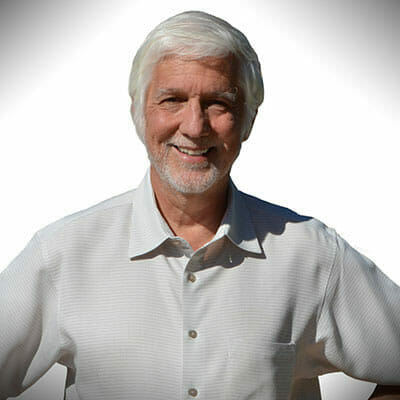Bromazepam Side Effects
The side effects of Bromazepam are not unlike those of other benzodiazepine drugs such as Valium©. Not all possible side effects are listed here; if a person experiences significant discomfort, seek medical attention immediately.
Like all benzodiazepines, some of the side effects can be quite mild and easy enough to tolerate, especially if the drug is only taken occasionally. With more long-term use, other reactions can be so harsh that a person will want to stop the drug. But please remember, it is not safe to abruptly stop taking benzodiazepine medications after regular use.
Benzodiazepines are a common choice for intended (self-administered) overdose, and are heavily implicated in accidental/iatrogenic overdose as well. Bromazepam was reported as the most commonly used benzodiazepine for intended suicide from emergency room reports out of France for the years 1992-1993 and 2001-2002. Reversal of benzo lethality is possible with the use of a benzodiazepine agonist called flumazenil if administered in time. Flumazenil is FDA-approved for the reversal of benzodiazepine overdose.2,4,9
Bromazepam side effects include:
- Paradoxical reactions: Although bromazepam is a sedative, opposite effects can occur. These paradoxical reactions are reportedly more likely to occur in the elderly. They include increased anxiety, restlessness, depression, delusions, rage, nightmares, etc.
- Severe allergic reaction ( abdominal cramps, nausea, sudden fever, rash, raised welts or swelling in the face, mouth, or throat, loss of consciousness, confusion, agitation, etc.) for which swift medical attention is essential.
- Sedation
- Pregnant and nursing women should not take bromazepam as it can harm the baby.8,13
- Depression, anxiety, agitation
- Thoughts of suicide or self-harm
- Difficulty breathing
- Decreased interest in things that usually were of interest
- Tachycardia
- Aural or visual hallucinations
- Insomnia, nightmares
- Memory impairment, anterograde amnesia (cannot form new memories, resulting in memory loss)
- Cognitive impairments and significant learning capacity reduction
- Drowsiness
- Deteriorated motor skill performance, i.e., delayed reflexes while driving or operating machinery, loss of coordination.
- Decreased libido
- Dystonia (rare condition of muscle spasms, jerks, repetitive movements or twisting of the body, face, etc.)
- Liver damage* 12
- Constipation
- Headache
- Slurred speech
- Nausea
*A person should get regular medical exams to monitor liver damage from bromazepam. “During the chronic administration, the liver weight increased 30-40%, with concomitant enlargement of the liver,” according to Fukazawa et al’s study.
Bromazepam Withdrawal Symptoms
Withdrawal symptoms will emerge after taking the drug for more than one week. Withdrawal from bromazepam can be ruinously harsh — therefore the drug should never be abruptly stopped but slowly tapered off under medical supervision.
If the tapering process is done slowly and with adequate support, withdrawals may be mild to moderate. However, some effects may present as more intense than expected even with a gradual reduction, and may require medical intervention to avoid protracted withdrawal, and though rare, fatality.2
Bromazepam withdrawal symptoms include:
- A return or worsening of symptoms such as anxiety, depression
- Agitation
- Confusion
- Tremors
- Loss of consciousness
- Tension
- Muscle pain
- Irritability
- Insomnia
- Diarrhea
- Headache
- Restlessness
- Drug cravings*
*Bromazepam should be taken only over a very short time frame due to risks of addiction and drug dependence, according to broad medical consensus.1,6
What is Bromazepam Used For?
Bromazepam is used as an anti-anxiety agent or sedative. It is sometimes prescribed “as needed,” for instance, to prevent an occasional full-blown panic attack, for sleeping, to alleviate occasional tension, or before minor surgery.
Unfortunately, the drug can quickly become addictive and can become extremely hard to stop after a person takes it regularly for more than 1 or 2 weeks. Paradoxical effects, as mentioned above under “side effects,” can significantly complicate the use of and withdrawal from bromazepam and similar benzodiazepines.
Bromazepam Alternative Names and Slang
Bromazepam is not sold in the US but is available in France, Spain, and possibly other countries under trade names such as Bromaze©, Somalium©, Lexotan©, Lexotanil©, Brazepam©, and others.
It is not clear whether slang names have developed over the 50+ years it has been around, except that as it is a benzodiazepine drug, in some circles it might be generally referred to as “a downer,” “a trank,” “candy,” or simply “a benzo.”
Bromazepam Tolerance = Withdrawal Symptoms
The body quickly develops tolerance to benzodiazepines, requiring more of the drug to attain the same level of sedation. When the drug is withdrawn, even after as little as a couple of weeks, bromazepam withdrawals will likely present. These can be severe reactions, in some cases life-threatening especially after long-term use, if the drug is stopped abruptly.1
Always seek medical assistance so that the drug can be slowly tapered down to reduce withdrawal symptoms as much as possible.









